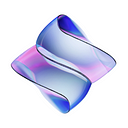February was another exciting month for the SEDA community, with plenty of progress and development to share. From our continued work on the SEDA Protocol to updates on our documentation and community resources, here’s a recap of all the latest developments!
SEDA Announces Q1 Roadmap
SEDA is gearing up for an exciting Q1 2023, with the release of our latest roadmap. After a productive month in January on the SEDA Testnet, the ecosystem and engineering teams are shifting gears and working towards expanding partnerships, building data price models and staking calculators, and creating user-friendly resources.
The ecosystem team is expanding SEDA’s native web3 data footprint by reaching out to new Web3 native providers like Binance, Coingecko, CoinmarketCap, and DeFi Llama. We’re also partnering with Web2 data providers and companies like OpenAI, Google, Amazon, Deutsche Bank, and others to explore new use cases that will bring even more value to the SEDA Network. Additionally, the team is developing a staking calculator that will simulate validator staking, rewards, token burns, and inflationary rates, as well as researching Oracle Extractable Value and its revenue potentials.
Meanwhile, our engineering team is working hard to ensure that our Testnet-0 and Testnet-1 releases are built on the most secure and efficient technology available. Testnet-0 will establish the project infrastructure, implement basic P2P network functionalities, support the execution of WASM Virtual Machines, and implement the SEDA Token main-chain contract. Testnet-1 will implement a simplified consensus algorithm as WASM binary, SEDA core contract with simplified consensus logic, and a staking contract without incentives.
Testnet-0 will include a Command Line Interface, Configuration Management, Cryptographic primitives, P2P network basic functionalities, and a Node Engine with a Job Manager and Event queueing system. The WASM Runtime will provide a framework for executing asynchronous code within the WASM VM and a convenient interface with SEDA’s host runtime functions. The main-chain contracts include SEDA token (NEP-141). Testnet-1 will feature staking capabilities, including staking actions from the command line interface, and a consensus WASM binary with a Data Request Batch Handler, Batch Vote Handler, and main-chain contracts with SEDA core contract and staking contract.
Check out the full roadmap here.
SEDA 💙 Base
We’re teaming up with Base, an open-source, low-cost, and developer-friendly Ethereum L2, incubated by Coinbase.
Through this partnership, we will provide scalable, secure data on-chain for the next billion web3 users. More details to come soon!
SEDA Engineering: February Update
February was a significant month for the Engineering Team as we shifted our focus from laying the project infrastructure to building the core functions of the SEDA protocol.
This month, we concentrated on four primary topics:
- P2P discovery
- Aggregate signatures
- Staking
- Explorer foundations
Additionally, we also wrote specifications on committee selection algorithms.
P2P Discovery
As part of the node infrastructure, we continued to improve our P2P network by implementing a robust peer discovery mechanism. It follows a hybrid approach that uses user-configured peers, mDNS (useful for testing), main-chain advertised peers, and S/Kademlia.
Aggregate Signatures
The SEDA security model relies on aggregate signatures to reach consensus efficiently and enable cheap and easy integrations with other protocols.
We created a crypto library as a wrapper of another widely-used bn254 library. It abstracts low-level operations and exposes functionalities required for signing, verifying, and aggregating signatures and public keys.
We added aggregate signature support in our WASM SDK (part of our node reference implementation) and main-chain contracts.
Staking
As a Proof-of-Stake (PoS) protocol, we implemented basic staking functionality in our contracts. We also added utility functions for checking consensus conditions, such as epochs and slots. We will use these later as conditions for the consensus logic.
Explorer Foundations
We have started laying the foundations for the development of the SEDA explorer. This includes setting up the frontend development environment, bootstrapping and securing AWS CDK (infrastructure), automated deployments, and researching the data we will want to display in the explorer.
About SEDA
SEDA is a multichain, permissionless protocol connecting real-world data to any network on-chain.
SEDA is backed by world-class investors such as Distributed Global, Coinbase Ventures, Reciprocal Ventures, Coinfund, Maven 11, Flow Ventures, among others.
Join SEDA’s community:
Telegram: https://t.me/sedaprotocol
Discord: https://discord.com/invite/wsNwx2N75B
Twitter: https://twitter.com/sedaprotocol
